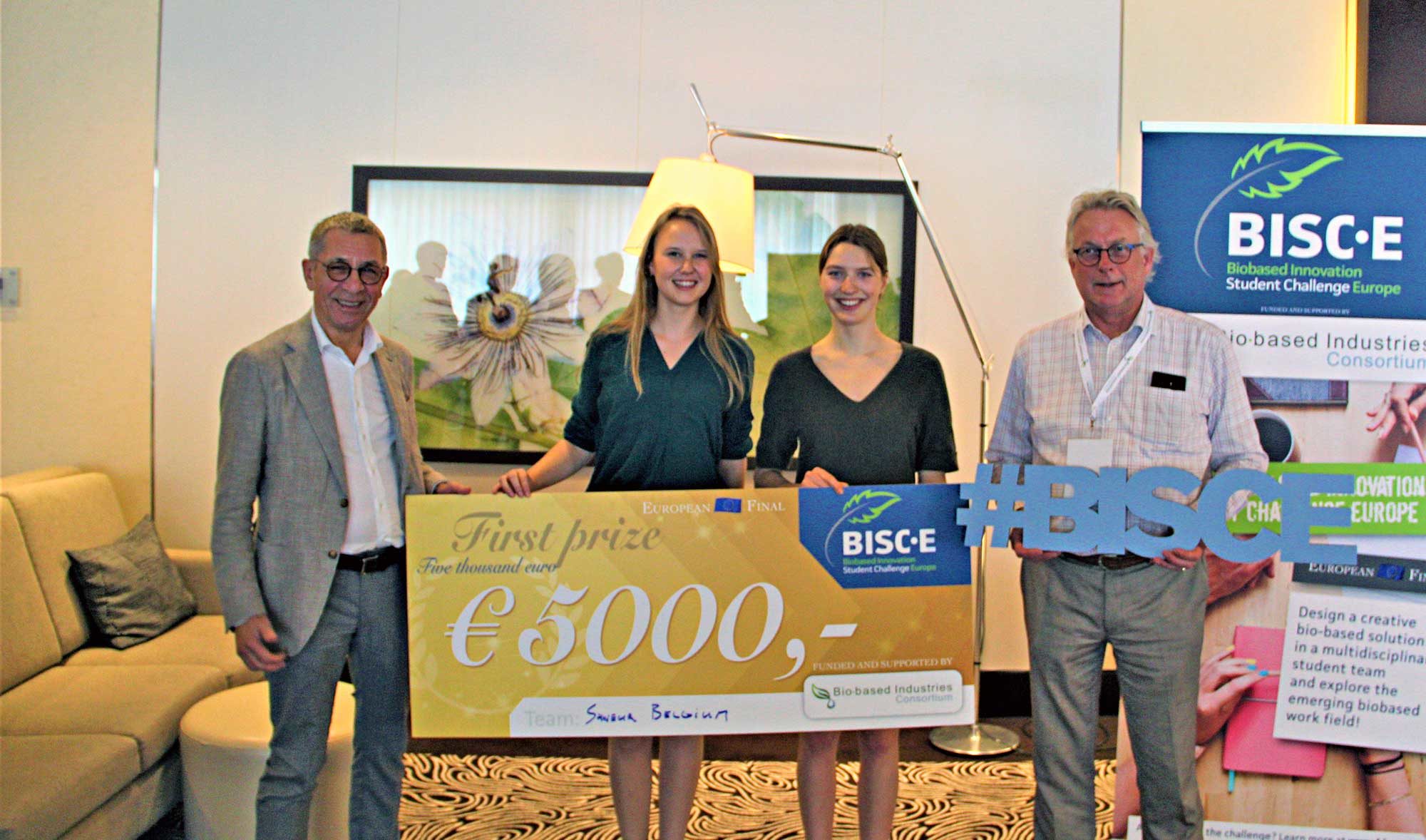The Bio-based Innovation Student Challenge Europe (BISC-E) seeks to promote breakthrough innovation in the bio-based sector in an annual competition between some of Europe’s most promising university students (BSc & MSc).
The competition was initiated in the Netherlands in 2017 with the aim of bridging the knowledge gap between students and bio-based materials by TKI-BBE, an entity to build, maintain and execute the national research and innovation agenda. Building on its success, the competition is now held on a national level in five European countries (Belgium, Denmark, Finland, the Netherlands, and Portugal).
“Ingenious concepts”
The jury were notably impressed by this year’s submissions, noted Nelo Emerencia, chairman of the BIC Education team and Programming of Director at the Bio-based Industries Consortium (BIC). “These projects’ ingenious concepts underline the importance of ensuring knowledge transfer, beyond the lab to the market. BISC-E is yet another example of how aligning educational systems with the future needs of industry is crucial for the development of the bio-based sector in Europe”.
BIC hosted the inaugural European BISC-E final at its annual gathering of top bio-based industry experts in Berlin, Germany, where winners from five national contests competed. Their innovative projects were first assessed by a jury, mostly consisting of academia, who decided on the top three. The jury members included: Kees de Gooijer (TKI Agri & Food), Cody Mayoh (NovaUCD), George Sakellaris (BIOCON), Manfred Kircher (CLIB). Gerlinde van Vilsteren of WUR is the BISC-E coordinator.
Following a vote by BIC’s industry members, it was the Sauveur team from Belgium which came out on top as winners with their innovative solution to reduce food waste. The Biosilence team from the Netherlands were runners-up with their bio-based solution to reduce noise pollution. Bark Union from Finland finished third with their project for innovative use of bark.



